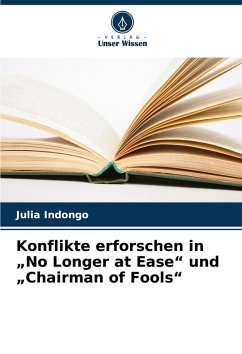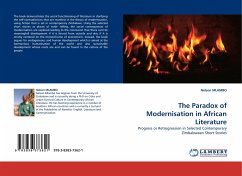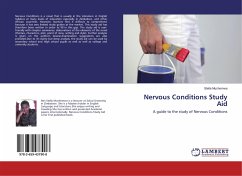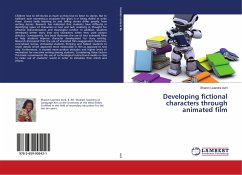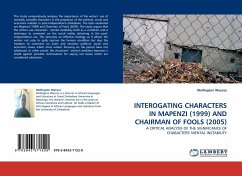
INTEROGATING CHARACTERS IN MAPENZI (1999) AND CHAIRMAN OF FOOLS (2005)
A CRITICAL ANALYSIS OF THE SIGNIFICANCE OF CHARACTERS'' MENTAL INSTABILITY
Versandkostenfrei!
Versandfertig in 6-10 Tagen
32,99 €
inkl. MwSt.

PAYBACK Punkte
16 °P sammeln!
This study comparatively analyses the importance of the writers' use of mentally unstable characters in the projection of the political, social and economic realities in post-independence Zimbabwe. The texts examined are Mapenzi (1999) and Chairman of Fools (2005). The study argues that the writers use characters' mental instability both as a condition and a technique to comment on the social reality obtaining in the post-independence era. This becomes an effective strategy as it allows the writers not only to aptly capture the human condition but also the freedom to comment on overt and sensi...
This study comparatively analyses the importance of the writers' use of mentally unstable characters in the projection of the political, social and economic realities in post-independence Zimbabwe. The texts examined are Mapenzi (1999) and Chairman of Fools (2005). The study argues that the writers use characters' mental instability both as a condition and a technique to comment on the social reality obtaining in the post-independence era. This becomes an effective strategy as it allows the writers not only to aptly capture the human condition but also the freedom to comment on overt and sensitive political, social and economic issues which most writers focusing on the period have not addressed. In other words, the characters' mental condition becomes a shield against possible victimisation for saying out issues which are considered subversive.






